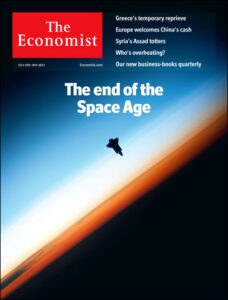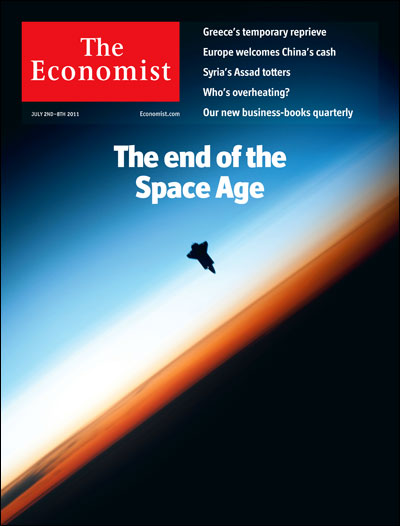In my last news roundup, I briefly discussed the Encyclopedia of Science Fiction being put online for free by Gollancz. At the time, I speculated: “Why [put it online for free]? Oh, I don't know, maybe reading through the encyclopedia will tempt people into buying more books and ebooks of and about the stories and authors described within it.” This was before I had heard about Gollancz's new SF Gateway imprint.
SF Gateway will be publishing online in ebook form a catalog numbering in the thousands of out-of-print backlist books from its authors. Including “the classic SF pulp writers of the Golden Age right through to modern award-winning authors,” SF Gateway purports to be “the largest library of digital Science Fiction and Fantasy ever assembled.” All of these titles will naturally be directly interlinked with author and title entries in the Encyclopedia of Science Fiction, so the encyclopedia will serve as a handy way to spur sales. The SF Gateway site will also serve in part as a social network, which is another clever idea — build up an online community around the encyclopedia and that large library of sf&f ebooks. You can read more about it in the pdf press release.
Also in the last news roundup, I mentioned some innovations in publishing. Here is some more info on a couple of them:
[continue reading…]
Help Promote Prometheus Unbound by Sharing this Post

Dr. Uchronia
The history that didn't happen can be just as interesting as the history that did.
This article is a small example of its own topic. Except by chance, I wouldn't now be writing it. Not finding what I wanted while browsing in our library's magazine aisles, I came across mention of “uchronie” in Le Nouvel Observateur. The philosopher Charles Renouvier chose this word as the title of his novel of 1857 and 1876; he coined it from Greek roots meaning “no time.” He was following the pattern set by St. Thomas More, whose Utopia derives from roots meaning “no place.” Utopia is a place that does not exist; uchronia is a time that did not exist. Uchronian works — to introduce the English adjective — are also called “what-if,” alternative, conjectural, or counterfactual history. They consider what would have happened if something else had chanced to happen.
Such works fall into two categories. The distinction is fuzzy but useful. Writings of the first kind, unlike actual history or a standard historical novel, are sheer fiction. They are not speculations about real events; they are stories that stand on their own. The Star Wars movies and Tolkien's tales are good examples. Another is Islandia, a novel by Austin Tappan Wright, published posthumously in 1942. Wright describes events and personalities in a country on a fictional continent in the Southern Hemisphere before World War I. The people of Islandia, while highly civilized and advanced in philosophy and psychology, prefer their old ways, rejecting railroads and most other modern technology and narrowly limiting contact with the outside world. The reader (this one, anyway) drifts with the author into sympathy with the Islandian way of thinking.
Edward Bellamy's Looking Backward (1887) projects an opposite vision, one intended as backward only in an ironic sense; it imagines a prosperous and happy socialist utopia of 2000. This uchronia actually exerted some influence in its time, converting many readers to socialism because they wanted to live in the world of Bellamy's vision.
[continue reading…]
Help Promote Prometheus Unbound by Sharing this Post

William S. Kerr
 William S. Kerr's first novel, The Shield that Fell from Heaven, is a delightful surprise. It is not a book I would have expected to find from such a small publisher, Groton Jemez Publishing, and it is not a book I would have expected to find in this century. Indeed, had I been told it was written in the 19th, I would have believed it, at least until I came to a more modern science fiction element.
William S. Kerr's first novel, The Shield that Fell from Heaven, is a delightful surprise. It is not a book I would have expected to find from such a small publisher, Groton Jemez Publishing, and it is not a book I would have expected to find in this century. Indeed, had I been told it was written in the 19th, I would have believed it, at least until I came to a more modern science fiction element.
It is written as the journal of a Frenchman who, in 1861, on the eve of our War for Southern Independence, comes to America as a war correspondent. Edouard de Grimouville is a minor noble whose House has lost most of its fortune. In the neutral state of Kentucky he finds political opinions of all stripes, a woman to fall in love with, and more adventure — and of an unforeseeable sort — than he was looking for.
Kerr writes with the prose of a bygone era, and does so convincingly, like a foreigner who has mastered a native accent. As a lover of that more sensuous, patient style, I was quite happy to immerse myself in it and would have gotten some enjoyment from the experience even if that had been the only appetizing aspect of the novel. There is, of course, much more to enjoy.
[continue reading…]
Help Promote Prometheus Unbound by Sharing this Post

Few philosophies have a greater mutual suspicion and natural antipathy to each other than libertarianism and ecology. This is not surprising, since the former takes the human individual and the latter the nonhuman environment, as its sovereign concern. But since our state-plagued era has seen the degradation of both individual liberties and the quality of the environment, we ought to question the degree to which these exist in an inverse relationship. Libertarians who wish to learn how to accommodate ecological ideas could do no better than to begin with a short 1975 novel by Ernest Callenbach, not because the novel has any libertarian intent (it clearly doesn't), but because the principle of political decentralization, which Callenbach sees as an ecological necessity, leads him unconsciously, almost blindly, in a libertarian direction.
Ecotopia was clearly born out of the political and economic turmoil of the 1970s. As the book describes it, “The persistent inflation and recession of the seventies had caused widespread misery and undermined Americans' confidence in economic progress.… And chronic Washington scandals had greatly reduced faith in central government.” Of course there was also a war that dragged on and on despite widespread opposition. In other words, it was a time much like our own, which may be why there has been a renewal of interest in the book in the last few years. A New York Times article from 2008 called it “The Novel that Predicted Portland” for its advocacy of green lifestyles. Well, not quite, as we shall see.
While contemporary greens tend to advocate greater power for national and international governmental agencies to regulate on behalf of the environment, Callenbach's book was informed by decentralist and anti-authoritarian ideas of the New Left. These led him to a solution that had long since been thought impossible in American politics: secession. Ecotopia is also the name of a new nation in the novel, consisting of what used to be Oregon, Washington, and northern California, which seceded from the United States in 1980.1 In 1999, Will Weston, a journalist from what remains of the United States, sets out to write a series of articles about Ecotopian life. These, alternating with Weston's private diary entries, comprise the novel.
[continue reading…]
Help Promote Prometheus Unbound by Sharing this Post
- From Mike P. over at The Emptiness comes “Socialism: A love story — Star Trek,” in which he discusses his love affair with Star Trek and how realizing it's a utopian socialist fantasy actually makes the show more enjoyable.
- From SF Signal comes news that the Hugo Award–winning Encyclopedia of Science Fiction, edited by John Clute and Peter Nicholls, is receiving a long-awaited update to its third edition (the last, second, edition was published in 1993) and — wait for it — is being made available for free online. Why? Oh, I don't know, maybe reading through the encyclopedia will tempt people into buying more books and ebooks of and about the stories and authors described within it. And simply keeping the history of the genre alive and readily accessible to future generations is a worthy endeavor in itself, of course.
From the press release:
The third edition of the Encyclopedia of Science Fiction, the definitive reference work in the field, will be released online later this year by the newly-formed ESF, Ltd, in association with Victor Gollancz, the SF & Fantasy imprint of the Orion Publishing Group, whose support will enable the text to be available free to all users. This initial “beta” version, containing about three-quarters of the total projected content, will be unveiled in conjunction with Gollancz's celebrations of its 50th anniversary as a science fiction publisher.
[continue reading…]
Help Promote Prometheus Unbound by Sharing this Post

 The Libertarian Futurist Society has announced this year's winners of their Best Novel and Hall of Fame awards.
The Libertarian Futurist Society has announced this year's winners of their Best Novel and Hall of Fame awards.
Alas, I didn't get around to reading and reviewing Cory Doctorow's For the Win in time for the voting, but I still plan on doing so. Matthew Alexander reviewed another of the finalists, L. Neil Smith's Ceres.
Here's the official press release:
The Libertarian Futurist Society will hold its annual awards ceremony for the Prometheus Award during Renovation, the 69th World Science Fiction Convention, to be held Aug. 17-21 in Reno, Nevada. The specific time and location will be available in the convention program.
The winner of the Best Novel award is Darkship Thieves, by Sarah Hoyt (Baen Books). The Hall of Fame award was won by Animal Farm, a short novel written by George Orwell in 1945. Sarah Hoyt will receive a plaque and a one-ounce gold coin, while a smaller gold coin and a plaque will be presented to Orwell's estate.
Darkship Thieves features an exciting, coming-of-age saga in which a heroic woman fights for her freedom and identity against a tyrannical Earth. Hoyt's novel, dedicated to Robert A. Heinlein, depicts a plausible anarchist society among the asteroids. Hoyt is a prolific writer of novels and short fiction, though this is her first time as Prometheus finalist.
[continue reading…]
Help Promote Prometheus Unbound by Sharing this Post

So announces the cover of the July 2nd – 8th issue of the Economist.

I'm not privy to what angle the article or articles will take, but I presume the cover is referring to the retirement of NASA's space shuttle program without a government replacement. But why need that mean the end of the space age?
[continue reading…]
Help Promote Prometheus Unbound by Sharing this Post









